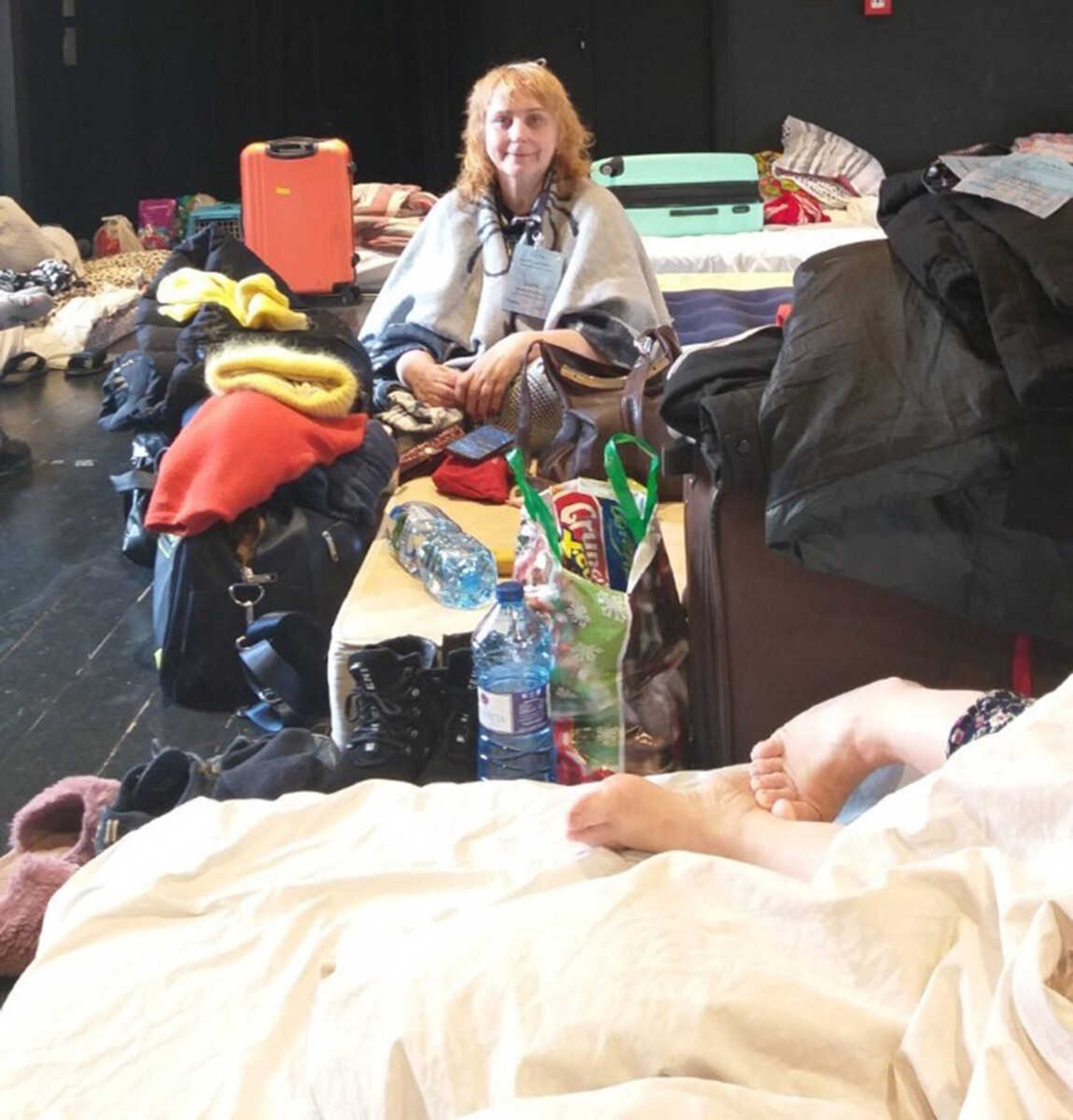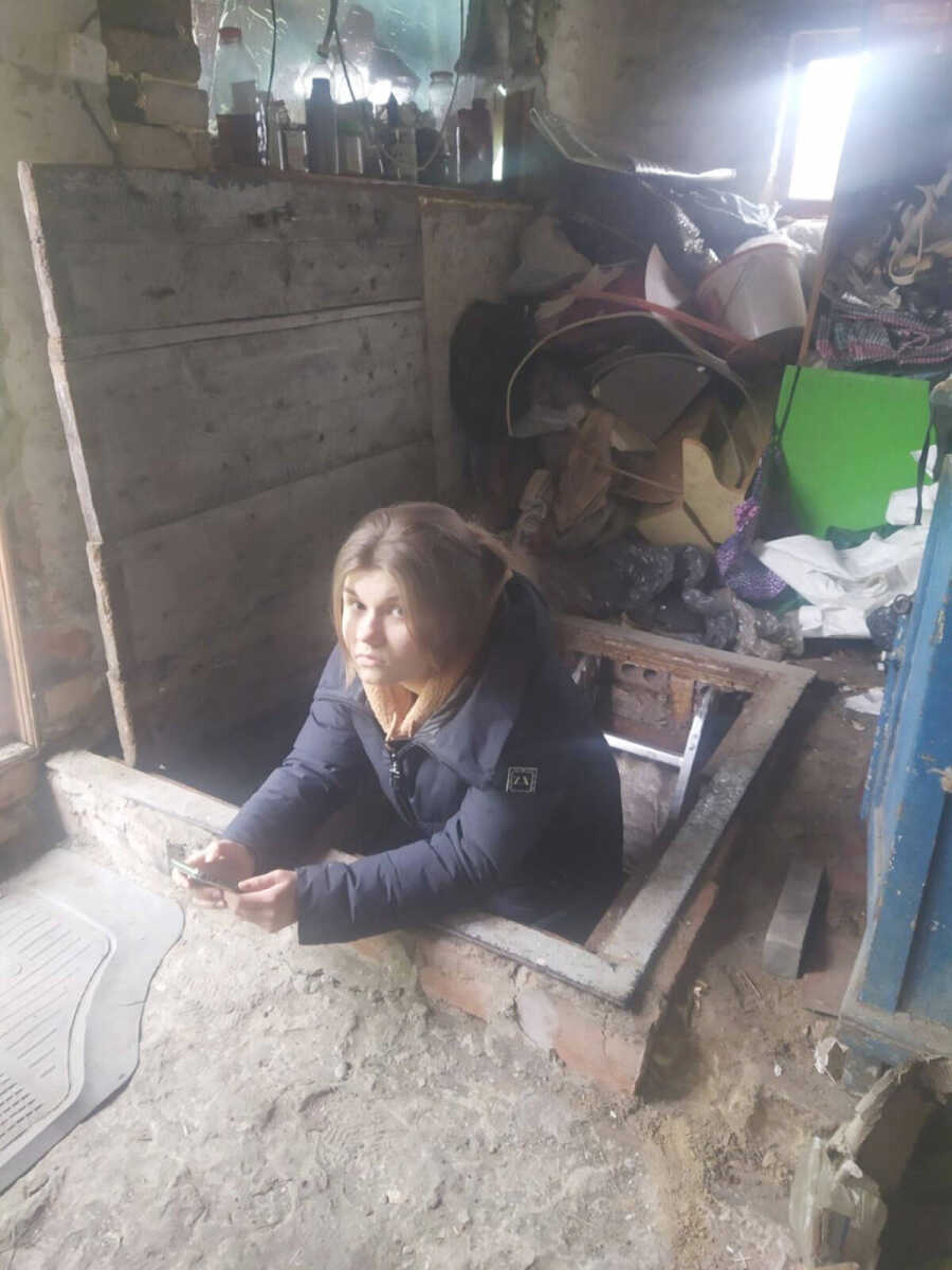Terror, courage and dismay as my wife's aunt flees bombing in Ukraine
The terrifying morning after the bombs started to fall on her city in Ukraine, my wife's aunt fled from her high-rise apartment to a colleague's house farther from the city center. For more than two weeks, she and her friend's family scrambled to the ground anytime they heard the sound of "incoming" and crawled to an earthen potato cellar. ...
The terrifying morning after the bombs started to fall on her city in Ukraine, my wife's aunt fled from her high-rise apartment to a colleague's house farther from the city center. For more than two weeks, she and her friend's family scrambled to the ground anytime they heard the sound of "incoming" and crawled to an earthen potato cellar. Moving the potatoes and jars of pickles aside at night, they tried to sleep in the same cellar, but the artillery rarely stopped, and sleep was restless. They became more frantic, and her friend's 16-year-old granddaughter started to scream hysterically at each, frequent explosion. Eventually, under the stress, her friend suffered a stroke. They tried to take her to a hospital, but staff was too busy with other problems. They turned the car around and returned to their life -- broken windows and destroyed houses around them, sirens blaring, smells of destruction -- largely underground.
Here in Cape Girardeau, my wife, Victoria, and I used the app Viber to send text and voice messages to Aunt Zoia. We typed prayers, and friends and family around the world joined in the prayers. Each morning, though, we didn't know if we would find only silence greeting our messages, and our fear was that we may never know what happened if we did.
For months prior we had encouraged Zoia to come to the States. She still had an active tourist visa from the last time she visited. But she never thought Russia would invade -- and certainly not with such brutality and malice, especially against the very people Russian President Vladimir Putin said he was "liberating."
"Russia invading Ukraine is like Cape Girardeau invading Jackson," voiced my wife. So many families are intermingled. Her own, for example, lives in three former Soviet republics, regularly traveling between them. What hadn't been fully assessed was the megalomania and pure, brutal evil of the despot Putin.
But even with the bombs falling, Zoia didn't want to leave her home. Kharkiv, the second largest city in Ukraine, was full of good memories: work, parties with colleagues, walks in beautiful parks, charming cafes, her daily life, her daily purpose. Within the first week of the invasion, the central square and most of the historic buildings around it were bombed to rubble. Still, she didn't want to leave, in part we feared because she was simply in shock -- and sleep deprived. She also didn't want to abandon her colleague.
Through prayers, friends and the help of churches in Ukraine, Poland and the United States -- including La Croix here in Cape -- an evacuation plan began to fall into place. Her elderly colleague, who suffered the stroke, was taken by family to a different location farther from the fighting. Another colleague convinced Zoia that they could get away safely. One of the churches where my wife had contacts was bringing in buses to shuttle people out, and after the first one was canceled, Zoia and her friend made it on the next. For more than two weeks she had lived in the same clothes, sleeping in a cellar. Although it wasn't safe, she stopped at her apartment to change and grab a small bag of essentials: mainly prescriptions and a change of clothes. People were being told they couldn't bring much.
From there she traveled by bus westward across the country -- Kharkiv is located on the eastern border with Russia -- to wait in massive lines at a train station in Poltava, from where she trained to Lviv, before squeezing into a church van that took her, her friend and others to Krakow, Poland. There, they were welcomed as refugees. Praise the Poles -- and the churches -- for their incredible generosity!
While we continued to text, talk and send voice messages, Zoia fell into a surreal period of living in a village at the foot of the Carpathian mountains. Food was limited, but it was enough. Transportation was spotty, but volunteers would check in to take those who needed to see a doctor, a dentist. She helped take care of another refugee's young son as the mother, who was conversant in Polish, walked miles to look for work. Zoia still wasn't sure she wanted to leave, because doing so would mean a more finite end to her old life, and we gave her time to process it all. But when her friend from Kharkiv departed to join family in another country, she was ready. And four days later, she flew from Krakow to Warsaw, Chicago and then St. Louis -- eventually making it to Cape Girardeau.

The first evening, battling jet lag, she joined me as we sat on the sidelines watching my 9-year-old daughter play soccer.
"It's so peaceful here," she said. "It's a whole different world."
She was quiet. Who knows what she was thinking.
Since then, though, we've talked about the bombs, the messages she received from Russian cousins who didn't believe that Putin had invaded and who warned her "not to be zombified by CIA and fascist Nazi propaganda," about the rubble around her apartment building, of the horrific news of war crimes, inhumanity and genocide.
Throughout the day, she watches Ukrainian news, does yoga and dances, walks, cooks, spends time with our kids and my parents. She wants to work -- to have a routine, especially while the rest of the family is away at work and school. She is resilient. On Sunday, she celebrated Orthodox Easter -- which comes a week later than our Easter -- with other Ukrainians and Russian-speakers in Jackson. Prayers were lifted for Ukraine, and it brought her peace to be with others seeking intercession in a horrible, senseless war.
We pray every day for Ukraine and for America and NATO to stay strong and be more proactive. We pray that China has a change of heart. We pray for wisdom for all leaders, and for Ukrainian president Volodymyr Zelenskyy to be protected. We pray for humanity and kindness and courage and strength. We send money to refugee groups and churches -- and fill out forms so Zoia will be recognized with Temporary Protective Status here in the United States.
We also lift prayers for those suffering in Russia and Belarus. Putin and his military sycophants, not the Russian people, are the problem (though this becomes more complicated the longer the war goes on). Propaganda is powerful in Russia, and most people are terrified of the state. Still, many brave individuals are resisting. In Belarus, an underground group helped shut down the train system, depriving Russia of logistical support and helping to force its military retreat from outside Kyiv. People are voicing opposition in creative ways, and information is being sent where it can, how it can, especially to those with VPNs. Dear God, give the world fortitude and guidance to discern truth from propaganda.
For those interested in helping Ukrainians, one way is through the group "Uniting for Ukraine." Its website: www.ukraine.welcome.us/.
Individuals, churches, groups can work together to sponsor a Ukrainian family, even bringing them to this area. Donations can include money or offering lodging, jobs, transportation assistance and more to those who qualify. Millions of Ukrainians have been dislocated. And as of Monday, a defined process has been created to bring some of those refugees to the United States.
In the meantime, the bombs continue to fall. Let us lift up prayers for those resisting evil and tyranny on the front lines of freedom -- and for their families wherever they are.
Jon K. Rust is publisher of the Southeast Missourian. He previously studied and worked in Russia and Ukraine and has visited in-laws numerous times on the Russian-Ukrainian border. His wife is a native of Belarus.
Connect with the Southeast Missourian Newsroom:
For corrections to this story or other insights for the editor, click here. To submit a letter to the editor, click here. To learn about the Southeast Missourian’s AI Policy, click here.











